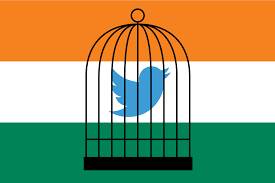
50-60 % of tweets asked by Centre to be blocked are innocuous
In its RTI application, the Centre had asked Twitter to share details of any tweets it had blocked in response to a request sent by the ECI. But the company said that out of all the requests made by the ECI, around 60-65 % were innocuous — that is, they did not violate any Twitter rules. The remaining 35-40 % was made up of tweets that contained abusive content or otherwise broke the law.
There are many reasons why some tweets are blocked. Some of them are simply automated decisions made by Twitter staff. When someone tweets a link that contains malware, for example, any user who clicks on it will see a warning. This happens even if they’re not logged in to their account at the time. Similarly, when someone tries to post a link that has been reported as spam, anyone who views it will see a message stating that this is not allowed.
But much of the rest is done by automated systems based on factors such as whether or not a tweet contains certain words — or certain keywords — and how “relevant” it is to your account.
Senior attorney Arvind Datar claimed on Monday that Twitter was abiding with the Information Technology Act while speaking for the firm online.
He argued that the Center's request for Twitter to remove accounts without first notifying the suspected violators had an impact on the platform as a whole.The senior attorney gave the example of a specific banning order that instructed Twitter to deactivate 1,178 accounts. They (account holders) were not informed by the government, and Twitter was not permitted to inform them either. Datar claimed that the IT Act's Section 69A provisions were not adhered to. He gave the example of a Tweet that was taken down by government authority. Twitter, according to Datar, blocks tweets that it deems to be untrue. He claimed that Twitter blocks tweets that advocate for 'Khalistan.' However, between 50% and 60% of tweets that the government requests be censored are deemed 'innocuous.'


